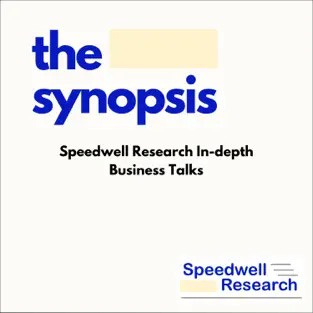What is a Fair Investment Assumption?
Information Theory, Falsification, and why the Independent Investor has every advantage.
Welcome to Speedwell Research’s Newsletter. We write about business and investing. Our paid research product can be found at SpeedwellResearch.com. You can learn more about us here.
There is a podcast of this memo that is available if you prefer listening to it. You can find it on our podcast feed here (Apple, Spotify).
Intro.
What is a good assumption?
If you are an investment banker, the answer is the one that gets you the deal done.
If you are a sell-side analyst, the answer is the one that matches a company’s quarterly earnings or is in consensus.
If you are a buy-side analyst, the answer is the one that makes money or can be explained away if it doesn’t.
But what about for the intellectually honest, independent investor who doesn’t care about “career risk” and is most concerned with producing strong long-term investment gains, while limiting their downside?
Hypothesis Generation.
Much like a scientist, it is your job to generate hypotheses. Instead of exploring the world of physicality’s though, you are exploring the world of possibilities.
Your hypothesis is typically called a thesis, and it involves an idea of 1) why the company can be successful, 2) why they can keep up that success, and 3) why an investor would be successful partnering with that company.
Or, in other worlds, 1) how they create and capture value, 2) how they protect that value, and 3) how you price that value.
This thesis isn’t a law though, it is a suggestion based off of the existing evidence and your digestion of the facts. As time passes you receive new evidence that will either confirm or disconfirm your thesis.
Investors commonly remark that they must avoid “thesis shift”. This is when the new evidence that is generated disconfirms your existing thesis, but instead of abandoning it, you decide to reformulate your thesis to incorporate the new evidence.
It turns out though, a modified thesis has a higher probability of being wrong. To understand why, we will start with first principles: what is information?
Information.
Let us turn to Claude Shannon’s Information Theory. When you receive information it is not strictly about the meaning you can glean from the message, but rather the number of alternative meanings that are eliminated. This makes sense if we consider many messages can have multiple meanings, but not infinite meanings.
For example, if a waitress asks you “was your meal okay?” and you respond “yeah, no, it was great!”. Think of how if you were given that message in three parts, how the meaning would change three times.
First hearing “yeah” the waitress would think the meal was okay.
With hearing “no” it would be unclear what was thought of the meal.
Then hearing “it was great” the waitress would think the customer liked the meal.
However, with just the first response it greatly reduced the probability that the message was that the meal never came. This exemplifies how information reduces alternative meanings without necessarily arriving at a singular, clear interpretation.
Shannon speaks of the amount of uncertainty or unpredictability in a message. The more a message can reduce this uncertainty, the more information it carries.
Said in other words, the more specific you are and the more detail you provide, the less the likelihood of being misinterpreted.
In the context of an investment thesis, we actually want uncertainty. That is because the more uncertainty in the thesis, the more ways you can be correct. For example, say a hedge fund analyst said this retailer was going to post a really strong year and beat annual sales expectations of $125mn. In contrast, a long-only investor thought the retailer would make at least $100mn in sales this year, which would be reasonable for the valuation they paid.
Since the long-only investor would be right if the company made $102mn, $109mn, $115mn, $140mn, etc., the long-only investor has more uncertainty in their thesis. In contrast, the hedge fund analyst has fewer possibilities to be correct and thus comparatively has a thesis with more certainty. In this example, the hedge fund analyst has more informational content in their thesis and the long-only investor has less.
For an investment thesis to have the highest probability of being correct, we actually want it to have the least informational content possible, while still being meaningful. Where the threshold of “meaningful” is struck, is dictated by the investors’ required rate of return.
Let’s say a company is valued at $1bn, has no growth prospects, and pays out 100% of profits annually. If an investor wants to earn at least a 5% return on purchasing that company, they will have to assume that the business earns at least $50mn a year. If they want to earn 10% a year, then they will need that business to earn at least $100mn a year.
On a slight digression, we can see here how it is the investor’s desire for a return, which is dictating the assumptions they use. This is very important to notice because it is often this desire for a higher return which will then lead them to use loftier assumptions. This is an incorrect way to invest. Your desire to make a lot of money will have no bearing on how much money the investment makes, but it will influence what you consider to be a reasonable assumption, and thus, open you to more risk. The thing to keep in mind is no investment has a guaranteed return and most investments have a very wide band of outcomes. Like a Rorschach Test though, the more you focus on your desires, the more that is all you see.
A sober investor will never base their assumptions on non-investment prerogatives (like an endowment’s 7% return mandate or their desire to own a beach house).
Now to better understand why we are looking for investment theses that have the maximum uncertainty and thus the lowest information content, we turn to Popper.
Falsifiability.
Philosopher Karl Popper is best known for his theory of falsifiability, which is most famously illustrated by the example of the existence of a single black swan disproving the claim that all swans are white. In terms of testing hypotheses, Falsification is the idea that for a hypothesis to be considered “scientific”, it must be able to be tested in a way that could prove it is false. If it is untestable, it isn’t in the realm of science.
However, some things are easier to falsify than others. For Popper, information meant an increased number of ways a statement could be false. And thus, the information content of an assumption is inversely proportional to its probability. The more information in a statement, the more likely it isn’t true.
For example, take these two statements:
There will be a car accident today.
Your friend will back up his car into a blue Rolls Royce in a CVS parking lot at 1:15pm today.
The first statement has very little information, but with near certainty will prove to be accurate. The second statement has more information, and thus, since we aren’t fortune tellers, is highly unlikely to turn out to be true.
The key is that a high informational content statement has a much lower probability of being correct, but whether an investor wants to focus on “high informational content theses” (which means a low probability of being correct) or “low informational content theses” (which means a high probabilitity of being correct) is based off: 1) their investing style, and 2) the payoffs associated with such statements.
Winning roulette requires being correct on a high informational content thesis since you have only a 1 in 38 chance of guessing correct. But if Roulette paid out at a rate higher than 38:1, you could reasonably expect to make money by playing a large number of rounds (of course casinos set the odds lower than this, so they are the ones that always make money).
However, in investing, it is the market participants that prices the odds and the returns associated with any investment are inextricably linked to the price paid.
As an investor, you want to find the opportunities where you can be compensated disproportionately for the informational content of your thesis. You want your payoffs to be higher than your chance of being correct. That is all investing is.
If you have a 1 in 4 chance of being correct, you just need the payoff to be greater than 4 to 1 and you are statistically ensured to make money if you can make that bet enough times. Reducing the information content required in your thesis is synonymous with increasing your chances of making money.
A Caveat: The Turkey Problem.
Similar to Hume’s problems with induction (drawing on past data to make a conclusion on the future), the turkey problem is an extreme incidence where the past data doesn’t just not provide information about the future, but rather provides misleading information about the future. Nassim Taleb illustrates it with a turkey who is fed every day and so then believes the subsequent day it will be fed again. Instead, one day it is slaughtered.
Shannon’s information theory suggests that incremental information decreases the probability of alternative messages being true, but you have to be extremely careful in interpreting your data. The Turkey problem is an issue with misunderstanding what data means. As David Deutsche notes, “We never know any data before interpreting it through theories”. He would argue that data doesn’t create understanding, but rather we impute the understanding to the data.
The turkey in this instance, had a theory of what being fed meant (I will be cared for and continued to be fed), but that theory wasn’t in the observation of being fed; the turkey created it to understand what food showing up meant.
An investor similarly makes up theories to fit the facts they gather. Does a company posting quarter after quarter of revenue increases mean the product is highly desired? Or does it mean that they are raising prices too quickly, which will create a vacuum for a lower priced competitor to enter the industry and steal share. How many quarters of revenue increases would you have considered as supporting your growth thesis only to—in hindsight—quickly realize it was only evidence of overearning?
The turkey problem is essentially to erroneously conclude the elimination of alternative interpretations of the data.
The Independent Investor.
We started this journey asking why does a modified thesis have a higher probability of being wrong? But by exploring that question, we hoped to show why there is an easier and harder way to invest.
But first, one reason why investment thesis shift is so pernicious is it is quite easy to reframe the data you see into a new thesis since the data itself doesn’t come packaged with “meaning”. It is on the investor to digest the new data and interpret it. When you are reinterpreting not just new data, but prior data in new ways, you are increasing the information content in your thesis. The more informational content in your thesis, the less likely it will be correct.
At the same time, you have eliminated one possibility from being true (your original thesis), which means that there is less uncertainty in outcomes (remember uncertainty from this perspective is the same as saying there are fewer ways you can be right). Lastly, there is also all of the psychological biases that are outside the realm of this memo.
This is why a modified these is more likely to be wrong. But how do you increase your chances of being right?
This is the key take-away and the reason why independent investors often have it far easier than traders, sell-side analysts, and investors that operate under mandates or in bureaucracies. An independent investor has the luxury of making their thesis as general and broad as they are comfortable with. This is not only far easier to do, but it increases the chances they will be correct.
An investor looking at Meta could have written off their Virtual and Augmented Reality efforts entirely and just had to be comfortable that the most dominant social media platform would continue to be dominant and serve targeted ads, as they had done their whole history. The independent investor didn’t need to assume any user growth or success from WhatsApp and could include $20bn in annual losses from the Reality Labs segment.
While of course the payoff of such an investment will be set by the price, the independent investor can formulate their thesis with as little information content as they are comfortable with, increasing the odds that they are right.
The more research an investor does, the easier it is to distill down the investment thesis into key assumptions, and have more confidence in those assumptions. This means they can have a lower informational content thesis with high conviction.
Most people can’t invest this way because of institutional mandates, careerism, or lack of emotional discipline. Let them create obstacles for themselves. Your job is to make this as simple as possible.
As Buffett says:
“I don’t look to jump over 7-foot hurdles, I look for a 1-foot hurdle that I can jump step over”.
The game is simple: find situations where the payoffs of being right are higher than the odds of being right.
Make your assumptions as modest as possible to increase your chances of being correct.
And if you are unsure… pass.
If you want to learn more about how to balance risk and reward as an investor, check out this memo!
The Synopsis Podcast.
Follow our Podcast below. We have four episode formats: “company” episodes that breakdown in-depth each business we write a report on, “dialogue” episodes that cover various business and investing topics, “article” episodes where we read our weekly memos, and “interviews”.
Speedwell Research Reports.
Become a Speedwell Research Member to receive all of our in-depth research reports, shorter exploratory reports, updates, and Members Plus also receive Excels.
(Many members have gotten their memberships expensed. If you need us to talk with your compliance department to become an approved vendor, please reach out at info@speedwellresearch.com).
















Terrific article!
"The more research an investor does, the easier it is to distill the investment thesis into key assumptions and have more confidence in those assumptions."
This is so true.
You master an investment thesis when you arrive at the point where "less is more."